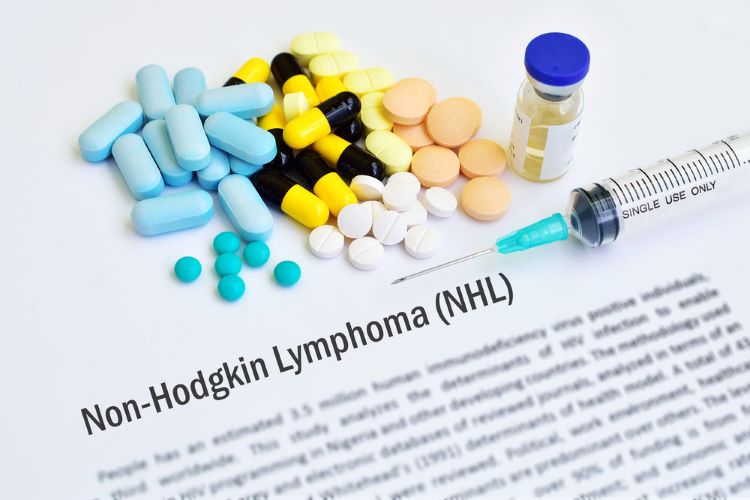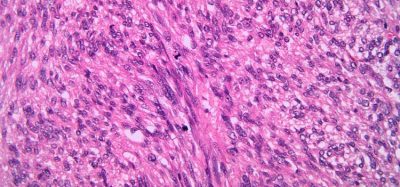FDA approves first new B-cell lymphoma treatment in 20 years
Posted: 20 April 2023 | Catherine Eckford (European Pharmaceutical Review) | No comments yet
A first-line B-cell lymphoma treatment shown to reduce the risk of disease progression or relapse by 27 percent has been approved by the FDA.


It has been nearly 20 years since a new treatment option has become available [for] newly diagnosed with diffuse large B-cell lymphoma [in the US]”
The US Food and Drug Administration (FDA) has approved Polivy® (polatuzumab vedotin-piiq) in combination with Rituxan® (rituximab), cyclophosphamide, doxorubicin and prednisone (R-CHP). “It has been nearly 20 years since a new treatment option has become available to people newly diagnosed with diffuse large B-cell lymphoma,” shared Dr Levi Garraway, PhD, Chief Medical Officer and Head of Global Product Development at Roche.
The combination treatment is indicated for adults who have previously untreated diffuse large B-cell lymphoma (DLBCL), not otherwise specified (NOS) or high-grade B-cell lymphoma (HGBL) and who have an International Prognostic Index (IPI) score of two or greater.
The FDA’s approval
The US regulatory body’s approval is based on pivotal data from POLARIX, an international Phase III trial of 879 patients. It demonstrated a statistically significant and clinically meaningful improvement in progression-free survival (PFS) compared to R-CHOP. The risk of disease progression, relapse or death was reduced by 27 percent with Polivy plus R-CHP compared with R-CHOP.
The decision switches the accelerated approval of Polivy in combination with bendamustine and Rituxan for relapsed or refractory (R/R) DLBCL after at least two prior therapies, to regular approval.
Polivy for diffuse large B-cell lymphoma
Polivy is a first-in-class anti-CD79b antibody-drug conjugate (ADC), stated Roche. The ADC binds to cancer cells such as CD79b and destroys these B cells through the delivery of an anti-cancer agent, which is thought to minimise the effects on normal cells. The CD79b protein is expressed in the majority of B cells. This is an immune cell impacted in some types of non-Hodgkin’s lymphoma (NHL).
Polivy is being developed by Genentech, part of the Roche Group, using Seagen ADC technology.
DLBCL is the most common form of non-Hodgkin’s lymphoma in the US. Around 31,000 people in the US are predicted to be diagnosed with the disease in 2023.
While many patients are responsive to initial treatment, as many as four in 10 people with DLBCL do not respond or relapse. Standard of care for DLBCL is Rituxan plus cyclophosphamide, doxorubicin, vincristine and prednisone (R-CHOP). For those who have initial treatment, most relapses occur within two years of starting treatment. The majority of those who require subsequent lines of therapy have poor outcomes.
Over 70 countries have approved this Polivy combination in adults with previously untreated DLBCL, including in the EU, UK, Japan, Canada and China. The treatment is approved in more than 80 countries worldwide for adults with relapsed or refractory (R/R) DLBCL after one or more prior therapies.
Related topics
Anti-Cancer Therapeutics, Biopharmaceuticals, Clinical Development, Clinical Trials, Drug Development, Regulation & Legislation, Research & Development (R&D), Therapeutics
Related organisations
Related drugs
cyclophosphamide, doxorubicin, Polivy (polatuzumab vedotin), prednisone (R-CHP), Rituxan (rituximab)









